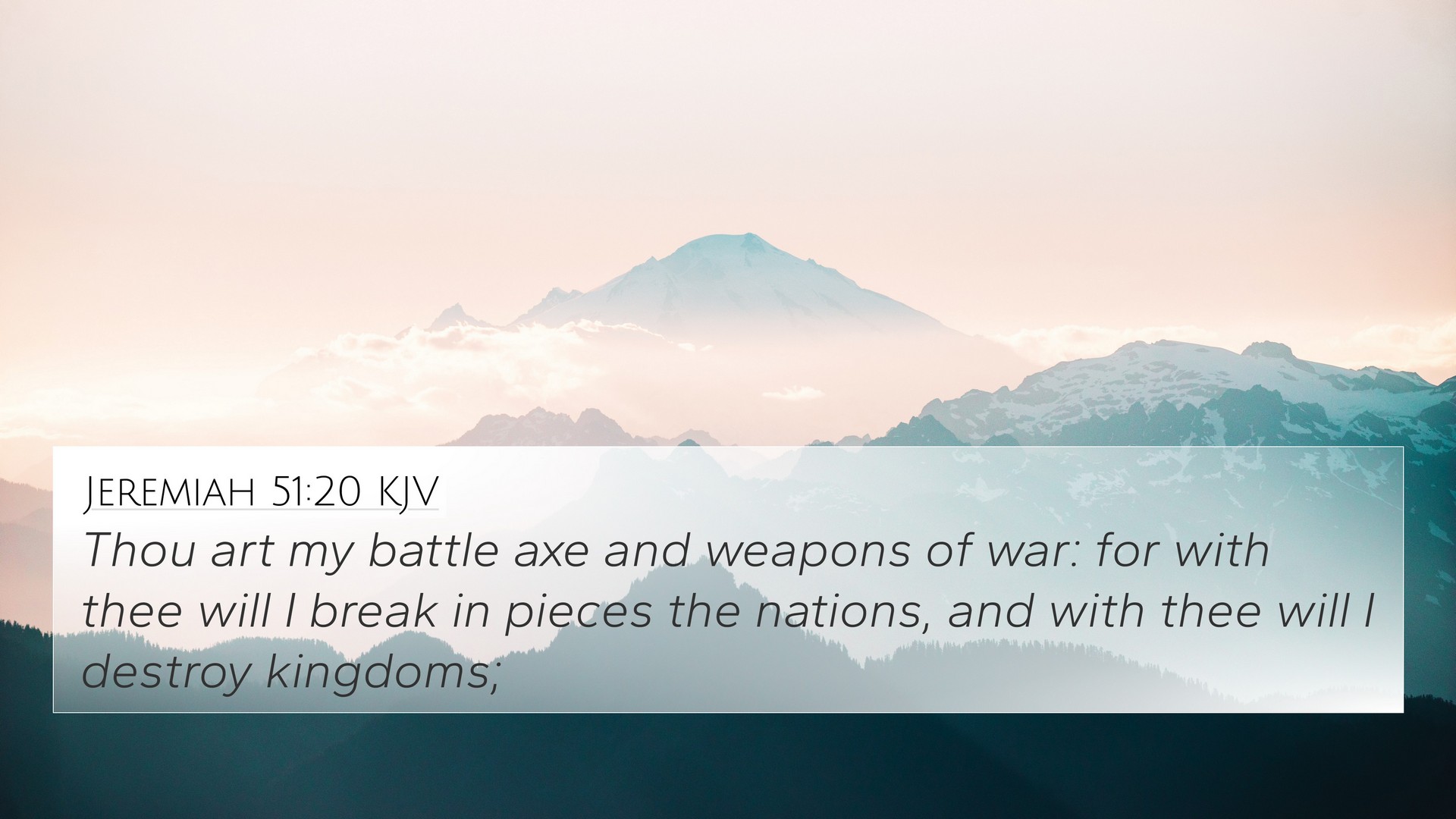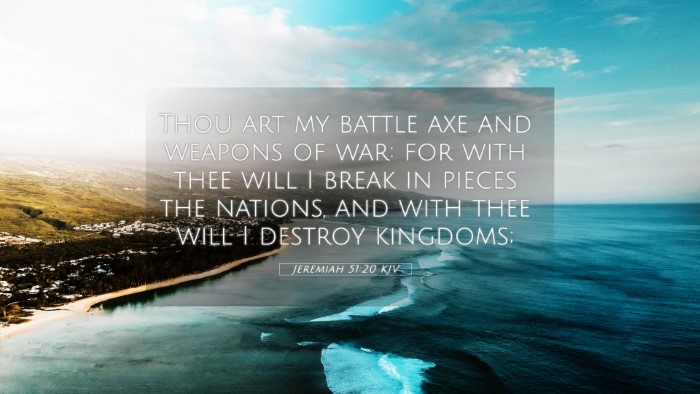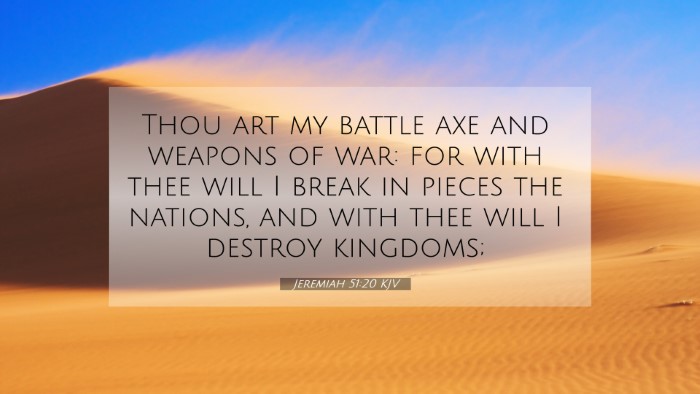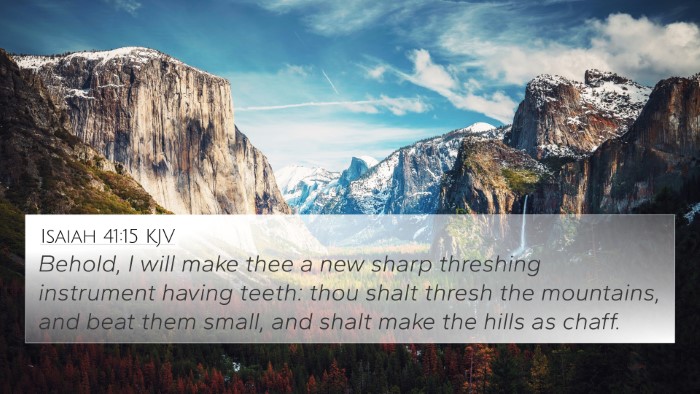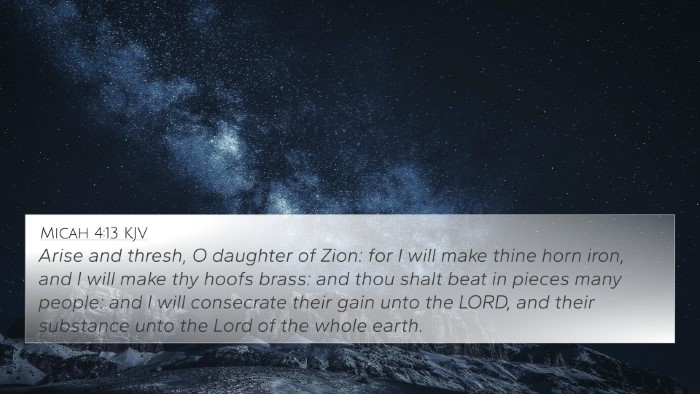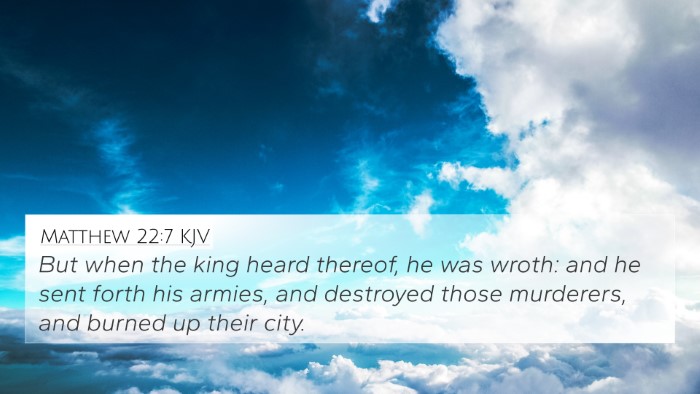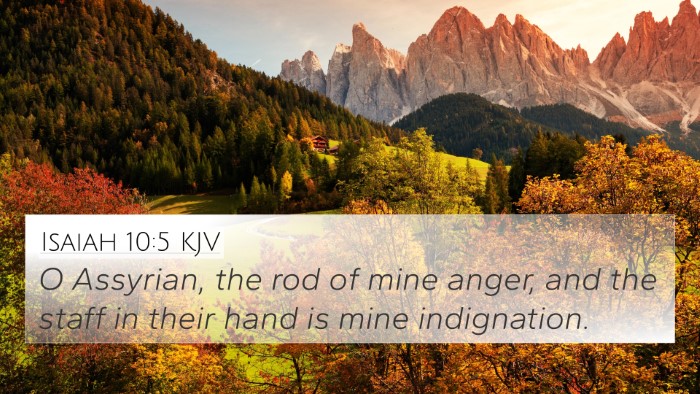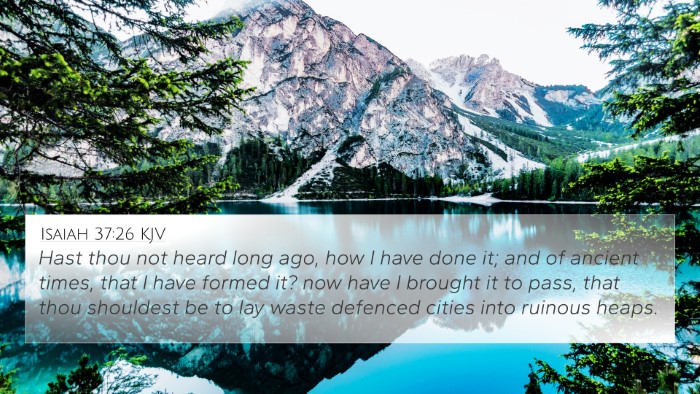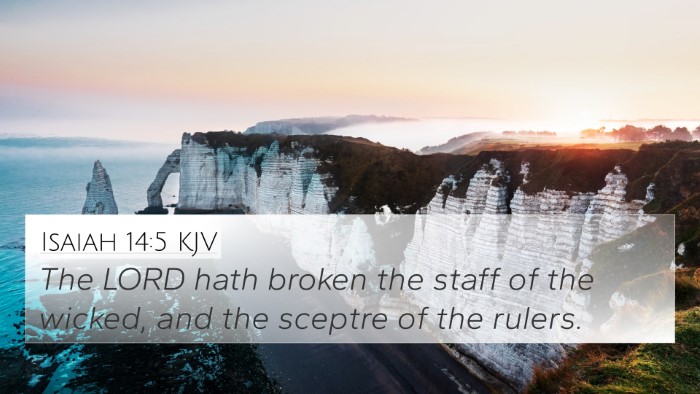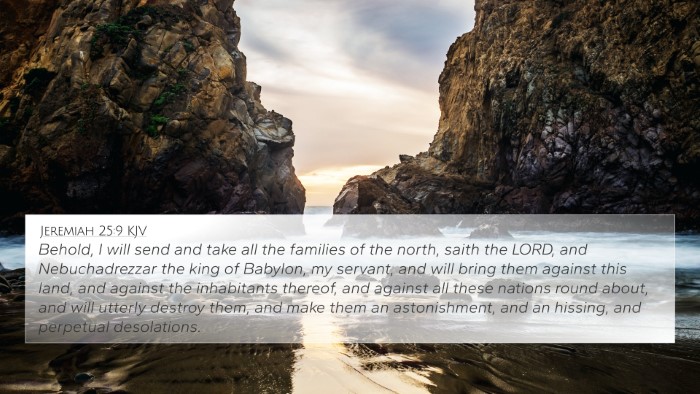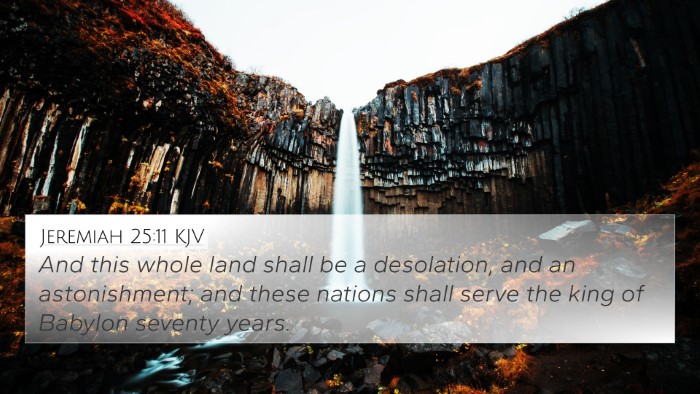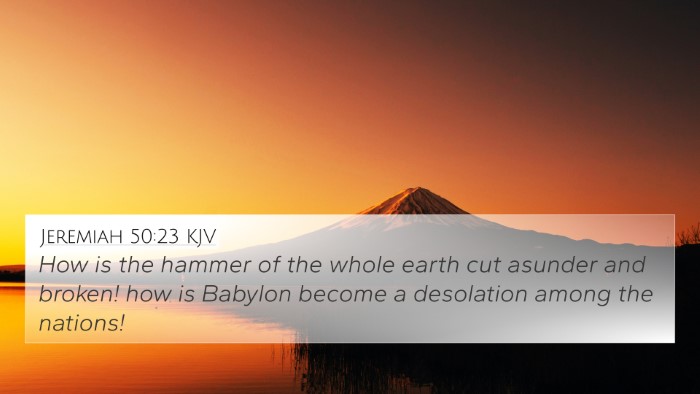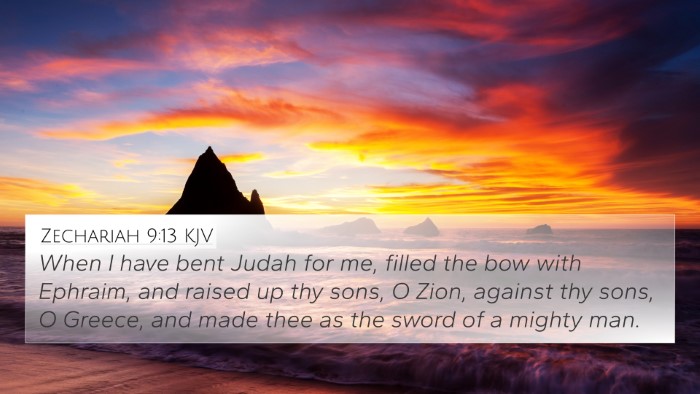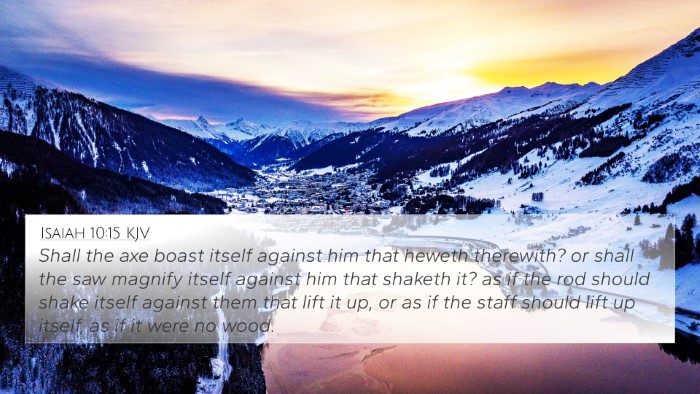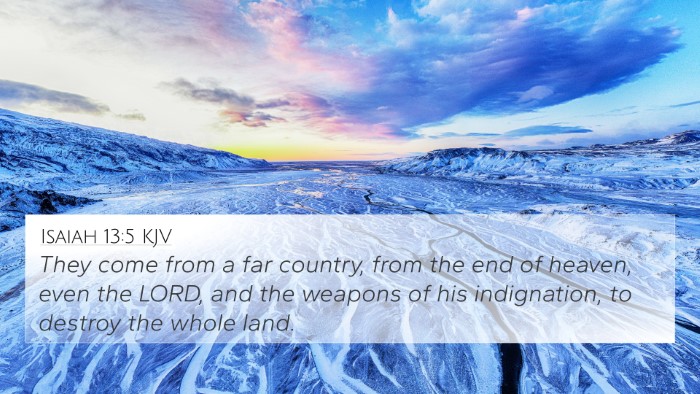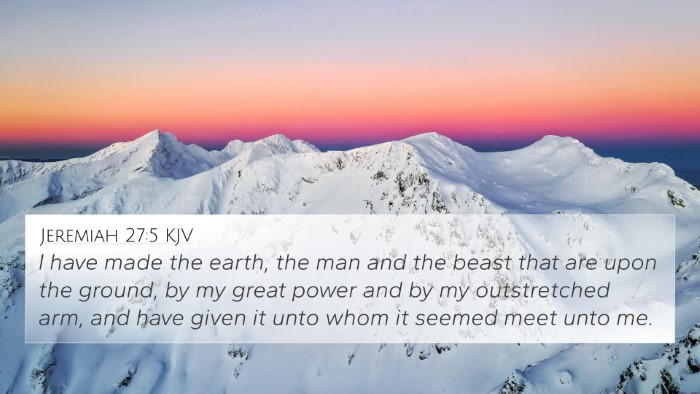Understanding Jeremiah 51:20
This passage from the Book of Jeremiah holds a significant place in the prophetic literature of the Bible. As we delve into this verse, we will draw from public domain commentaries that explore its depth and meanings, providing insights into its implications and connections with other scriptures.
Verse Context
Jeremiah 51:20 states:
“You are my hammer and weapon of war: for with you will I break in pieces the nations, and with you will I destroy kingdoms.”
Summary of Commentary Insights
This verse serves as a powerful metaphor where God describes His people as instruments of His wrath against nations that oppose Him. Below are insights from notable Biblical commentators:
-
Matthew Henry:
Henry emphasizes God's sovereignty and the role of His people as instruments in executing divine judgment. The metaphor of a hammer signifies strength and effectiveness in conquering evil.
-
Albert Barnes:
Barnes points out that this verse illustrates God's strategic use of His chosen instruments, serving to fulfill His purposes against the nations. He highlights both the authority and responsibility bestowed upon those God chooses to act through.
-
Adam Clarke:
Clarke elaborates on the theological implications by indicating that God empowers His people, giving them the ability to challenge and dismantle unrighteous structures within society.
Interpretative Themes
Jeremiah 51:20 holds themes relevant to several major discussions in both Old and New Testament contexts:
-
Divine Judgment:
The verse is steeped in the theme of God's judgment on nations that turn from Him, representing a crucial aspect of prophetic literature.
-
Instrument of God:
It positions believers as tools or instruments (i.e., hammer) administered by God to execute His plans, reflecting an active participation in divine purposes.
-
Victory Over Evil:
Breaking kingdoms signifies a broader narrative of overcoming evil and establishing God's righteousness on earth.
Bible Verse Cross-References
Several Bible verses may offer profound insights and connections related to Jeremiah 51:20:
- Isaiah 10:5: This verse talks about Assyria being the rod of God's anger, paralleling God's use of instruments for judgment.
- Romans 9:22: Discusses God’s sovereignty in dealing with vessels of wrath prepared for destruction, much like the nations God will judge.
- 2 Corinthians 10:4: Indicates that weapons of a believer are not carnal, but mighty through God to pull down strongholds, reflecting the spiritual warfare context.
- Revelation 19:15: Depicts Christ wielding a sword to defeat nations, echoing the concept of divine warfare against ungodliness.
- Psalm 2:9: Offers imagery of breaking the nations — showcasing an intended divine dominion over kingdoms.
- Hebrews 4:12: Speaks of the Word of God being living and powerful, sharper than any two-edged sword, aligning with the idea of God equipping His followers.
- Psalm 149:6-9: Outlines God's people executing judgment on the nations, resonating with Jeremiah's declaration.
Comparative Bible Verse Analysis
When engaging in comparative Bible verse analysis, it is essential to explore the connections and thematic links between scriptures to grasp their comprehensive teachings. Jeremiah 51:20 not only stands alone but also integrates with various themes across the biblical canon.
Conclusion
Jeremiah 51:20 serves as a reminder of God's power in using willing participants to carry out His will. By cross-referencing this verse with others, one can explore the inter-Biblical dialogue that showcases God's ongoing narrative through His people and the overarching themes of divine judgment and victory over evil.
Tools for Bible Cross-Referencing
For further study on how to find cross-references in the Bible, consider utilizing:
- Bible concordance
- Bible cross-reference guide
- Comprehensive Bible cross-reference materials
- Cross-reference Bible study methods
Understanding the connections between Bible verses enhances our knowledge of scripture, refining our insight into God's character and His dealings with humanity.
